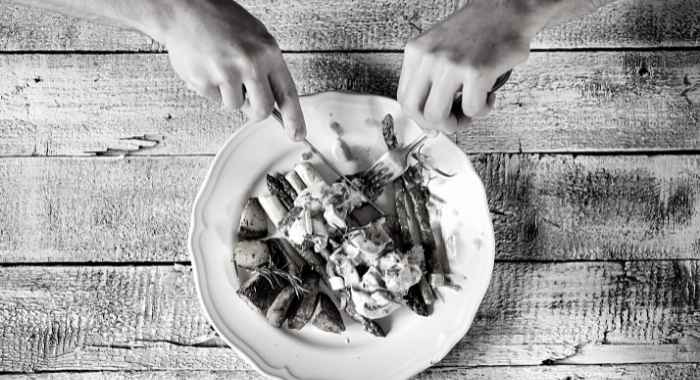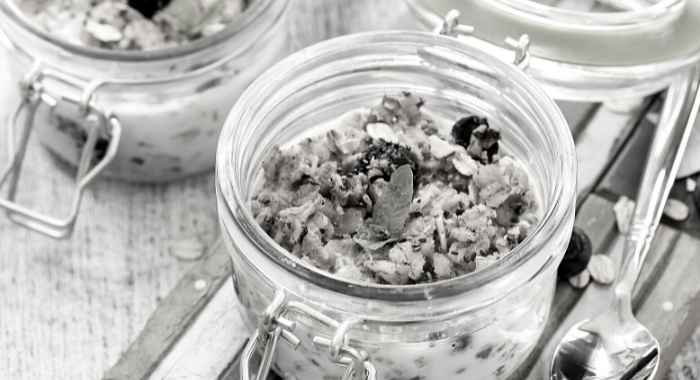5 Ayurvedic Tips for Healthy Skin in Winter
Cold temperatures and lower humidity in winter can be problematic for our skin. As a result, there are a number of skin ailments that may arise during the colder months and are more common than we think. These issues include dull, itchy and dry skin, cracked heels, chapped lips, acne and eczema. Are there any Ayurvedic tips for healthy skin in winter?
First, let us revisit Ayurveda… The National Ayurvedic Medical Association in the USA states: “Ayurveda utilises natural laws and rhythms as the guiding points to how we work with people to bring harmony and balance. Ayurveda is the original integrative medicine.” Meaning ‘the science of life’ in Sanskrit, Ayurveda has a rich history, having been practised in South Asia for over 5,000 years. Ayurvedic philosophy emphasises that all areas of life impact one’s health and thus the need to address health from the inside. Ayurveda recommends health-boosting activities as part of a daily routine to create a sense of inner balance. Therefore, even skin issues are dealt with in a holistic manner – considering the food we eat, our movement and our daily rest.
Here are 5 Ayurvedic tips for healthy skin in winter recommended by experienced practitioners of Ayurveda:
- EATING WARMING WHOLEFOOD MEALS
It is essential to keep your skin nourished from within. Ayurveda recommends consuming warming foods consisting of healthy fats and hot drinks. These include good quality protein, hot soups, oatmeal, roast vegetables, nuts, seeds and ghee. You should eat regularly and not skip meals. Watch the video to make a comforting bowl of Vegan Mac & Cheese with energising BOOSTING AMBERS blend, and get the recipe here. Drinking plenty of fluids, including at least 1.5 litres of warm water a day, will keep your skin well hydrated and supple. You can also hydrate yourself with warm drinks like a DIGESTIVE JADES tea (½ to 1 teaspoon of DIGESTIVE JADES added to warm water). We have some delicious, warming recipes made with BOTANISTRY organic health supplement powders here.
- STAYING ACTIVE EVERYDAY
Moderate exercise promotes blood circulation and sweating which eliminates toxins and can shift stagnant energy. This helps to prevent dull skin. Avoiding harsh weather conditions where possible, try to head outdoors for much-needed sunlight. Sun exposure is beneficial for one’s mood and metabolism as well as gives your skin and immune system a boost. Did you know that walking after meals aids in more effective digestion? Make it a habit to take a stroll after your heaviest meal and you will feel lighter and uplifted.
Meditation, breathing techniques and yoga can support blood flow; warming the muscle tissues and keeping the body flexible. Having your legs up or doing a handstand supports circulation and preventing stagnation of metabolic waste. Overall, staying active everyday can contribute to maintaining healthy skin in winter. Of course, there can be some days when you feel like hibernating, so listen to your body too. Read some handy tips about moving your body by pilates instructor Eden Pollock here.
- MASSAGE
In Ayurveda, a full body massage with long strokes towards the heart using warm oil (known as Abhyanga) is recommended. Traditionally, it is done at least one hour before bathing. However, during winter, it helps to massage some oil after showering and while still damp to seal in the moisture. Self-massage helps to increase circulation and relieve any joint stiffness; while enabling lymphatic drainage and thus natural detoxification. Avoid using harsh soaps on the body and skin. Instead, try to use natural oils like sesame, almond or coconut oils and natural butters like shea or cocoa butter for extra nourishment.
Don’t forget to moisturise the hands, feet and lips. For the face, using face oils and massaging with a Kansa wand or Guasha tool can help stimulate circulation for skin radiance. For some Sunday self-care, you could soak your feet in a footbath with a couple of drops of essential oil. Soak for 10 minutes, scrub away any dead skin, pat dry and rub some oil for a rejuvenating practice. You might like to massage oil into the scalp too, which can help prevent dry and itchy scalp.
- TAKING HERBS & SPICES
Spices like Turmeric, Ceylon Cinnamon, Ginger, Clove and Black Pepper are aromatic, warming and have anti-inflammatory properties that are beneficial for healthy skin. BOTANISTRY natural health supplement powders make it convenient to incorporate these valuable ingredients into your daily meals. BOTANISTRY organic herb and spice blends are formulated to address health goals, such as immune function and skin health, and have versatile flavours. They are easy to use by adding a teaspoon into smoothies, breakfast, energy bites, dips, etc. The added benefit of including herbs & spices is they help the digestive process, informing the body to be better prepared to breakdown what is consumed.
- REST & RECOVERY
Enjoying adequate rest and sleep are essential for healthy skin in winter. Having regular times to sleep and to wake up every day are important habits. Keep your sleep environment clean and comfortable. Using heaters can cause drier environments indoors and make our skin feel dry. Use a humidifier or place a large bowl of water in the room to provide moisture. Ayurvedic herbs like Ashwagandha are known for their balancing effect on the body. We blend Ashwagandha in our chai-like ACTIVE CORALS Ayurvedic powder, which pairs well in a hot cacao or plant milk drink.
We hope you find this journal post about ‘5 Ayurvedic tips for healthy skin in winter’ useful. Feel free to send us an email or DM if you have any questions.
Post a Comment
You must be logged in to post a comment.















